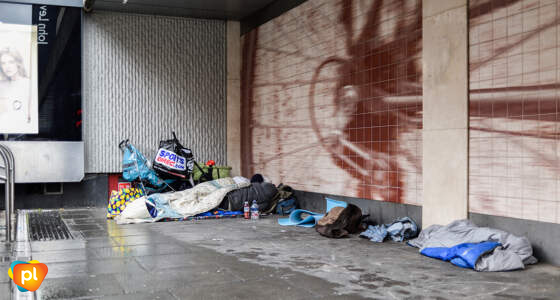
Finding yourself in a situation where you literally have nowhere to stay the night must be an upsetting and overwhelming feeling. For people living with HIV, this can be a frightening reality.
You might have seen the SBS program called Filthy Rich and Homeless. The series followed a group of public figures as they navigated the homeless landscape of Sydney.
It bought terrific awareness to the experience of homelessness and what that feels like, and at the end of the experiment fortunately for the television participants, they get to return to their safe, comfortable homes. People living with HIV who are rough sleeping don’t have that luxury.
The 2024 February City of Sydney Street Count had an increase in people sleeping rough or in temporary/crisis accommodation by 16% from last year. This is one major issue that’s not going away anytime soon.
There’s many reasons why someone finds themselves in this situation. Work falls through, the mortgage or rent get out of control, a partner leaves and takes the second income with them, substance misuse or that perfect storm of misery when several of these happen at the same time.
So what do you do if you find yourself in this situation of nowhere to stay, no food and no money?
A good place to start would be to triage or sort the order of your priorities.
If finding somewhere safe to stay is your number one priority, you have a few options. In NSW, Link2Home or 1800 152 152 is the state-wide, 24/7 telephone service to source temporary accommodation for anyone experiencing homelessness. The temporary accommodation they usually source is often limited to motel or crisis accommodation.
There are some great crisis accommodation services that can help out, however some people living with HIV experience challenges when using in these facilities. Sharing dormitories and facilities with people who are also managing their own crisis can be confronting, however one great benefit is the support you receive. The goal of the staff is to support you to find your own path out of homelessness. This could be in the form of medical referral, linking in with mental health services, assistance with intake into a rehabilitation facility or applying for social housing. Most importantly, these services will provide you with the basics of food and shelter which can help stabilise your current situation.
But say you can’t secure a bed for the night. There’s no vacancies at the crisis services. None of your friends can offer you a couch for the night. You’re literally faced with the only alternative but to sleep rough.
Anyone who has previously slept rough usually has some advice on the best places to bunker down for the night. These can range from parks, beaches, steps of a church or finding a safe nook in that “no man’s land” space between city freeways. Weather can play a major obstacle for where you decide as wind and rain can easily sour the best of plans so look for those sheltered options.
Food is probably the next essential necessity. Fortunately for Sydneysiders, there is free food to be found if you know where to look. As well as centre-based food services such as the Wayside Chapel in Potts Point, St Canice’s Church in Rushcutters’ Bay and the Station Drop in Centre in the CBD, there are also a range of free meal options across various locations offering either hot meals or sandwiches. These are provided to anyone. No judgment, no questions asked.
There are also laundry and shower facilities. Orange Sky Australia provide a free mobile laundry and shower service around various locations around Sydney. Their volunteers provide a platform for people who are experiencing homelessness to connect through a regular laundry and shower service.
Getting into a routine with your meds can be a challenge. When you’re sleeping rough, it can almost be impossible. Taking your daily meds is super vital for keeping your HIV under control. There is no easy answer on how to manage storing your medication. Homeless services may be able to assist. Speak with your GP or pharmacy on some options that may best suit your needs.
Newtown Neighbourhood Centre launched an initiative over the recent winter months called “Newtopian Outreachers”. A group of volunteers regularly hit King Street offering rough sleepers with practical assistance such as where to find a meal, organising temporary accommodation and providing phone cards to contact vital services such as FACS or Centrelink.
If rough sleeping is your only option, we hope it’s an extremely temporary arrangement for a night or two at most. Sadly, for some people living with HIV, rough sleeping can last much, much longer.
If you want support or someone to talk to, you can always get in touch with the Positive Life peer navigators (who live with HIV themselves) on (02) 8357 8386 or 1800 245 677 (free call) or contact@positivelife.org.au, whether you’re at risk of homelessness or you’re already there.
Image credit: Ian Francis / Shutterstock.com






